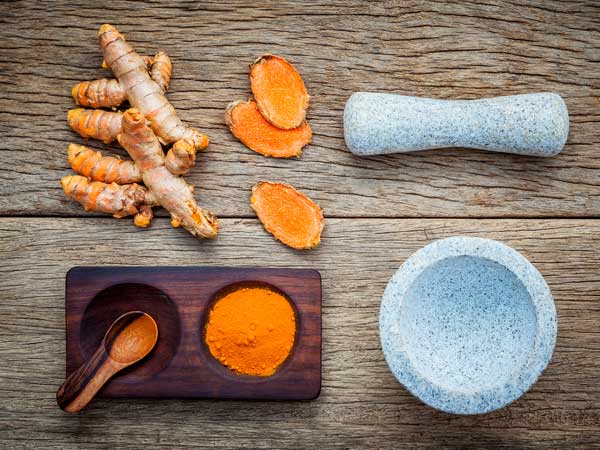Curcumin, the active compound in turmeric, has been extensively researched for its anti-cancer effects. A newer study provides insight into curcumin’s ability to starve cancer cells and slow tumor growth through a unique mechanism of action. In this in-depth article, we’ll examine the key findings of how curcumin targets cancer cell energy production and restricts blood supply to limit tumor expansion.

Turmeric has long been used in traditional medicine and as a culinary spice. The bright yellow pigment that gives turmeric its color comes from curcumin, a powerful polyphenol with medicinal effects. Recent scientific research has confirmed curcumin’s anti-inflammatory, antioxidant, and anti-cancer properties.
Over 4000 published studies describe curcumin’s anti-cancer actions. Curcumin is not easily absorbed and quickly metabolized and eliminated from the body. Therefore, it’s been difficult to establish definitive cause and effect relationships between taking curcumin supplements and clinical outcomes. Still, the favorable safety profile and multiple beneficial mechanisms of curcumin make it a promising integrative therapy, especially for cancer prevention.
This article will examine exciting new research into curcumin’s ability to starve cancer cells of energy by inhibiting ATP synthesis.
How Curcumin Targets Cancer Cell Metabolism
Cancer cells grow rapidly and uncontrollably. To support this excessive expansion, cancer cells have a very high demand for energy in the form of ATP (adenosine triphosphate).
Most healthy cells generate ATP through normal cellular respiration that requires oxygen. However, cancer cells can proliferate quickly even with low oxygen availability. They use an alternative pathway to produce ATP without oxygen. This metabolic difference provides an opportunity to target cancer cells while leaving healthy cells intact.
The featured study explored whether curcumin could take advantage of this divergence in metabolism to starve cancer cells of energy and slow their growth. Researchers first looked at the effects of curcumin on ATP synthesis in four different human tumor cell lines grown in the lab.
Curcumin decreased levels of the ATP synthase enzyme responsible for ATP production in all cell lines. It also reduced absolute ATP concentrations in three out of four cell types. Additionally, curcumin treatment lowered the ratio of energy-rich ATP compared to lower-energy AMP in all cell lines.
These initial results demonstrated curcumin directly impacts cancer cell energy generation through inhibiting ATP synthase. Next, the researchers tested whether curcumin could limit tumor progression in live mice.
Curcumin Restricts Tumor Growth in Mice Models
The researchers implanted highly aggressive melanoma cells into mice to evaluate curcumin’s anti-cancer efficacy in living organisms. After just two days, the curcumin-treated mice exhibited significantly slower tumor growth compared to untreated controls. This difference persisted throughout the remainder of the study.
Further analysis showed the curcumin group’s tumors contained lower levels of ATP synthase, ATP, and ATP:AMP ratios. This provided evidence that curcumin’s energy starving mechanism observed in cultured cells also occurs in vivo to restrict tumor expansion.
Beyond ATP synthesis, curcumin also appeared to limit tumor growth by reducing blood vessel formation. Angiogenesis, or new blood vessel development, is critical for supplying rapidly dividing cancer cells with oxygen and nutrients.
Examination of the tumors showed mice receiving curcumin supplementation had fewer blood vessels penetrating their tumors. Curcumin seemed to dually throttle cancer progression by cutting off tumor energy production and restricting their blood supply.
The Significance of Targeting Cancer Cell Metabolism
This research highlights ATP synthase and energy metabolism as novel targets of curcumin for cancer treatment. Many diverse cancer types rely on altered metabolic pathways to meet their excessive energy needs. Selectively depriving cancer cells of ATP could be an effective strategy for slowing tumor growth.
The study also reiterates curcumin’s ability to inhibit angiogenesis. Formation of new blood vessels enables tumor expansion and metastasis. Limiting nutrients and oxygen delivery via reduced angiogenesis provides another mechanism for curcumin to impede cancer progression.
While more research is still needed, these findings are promising. Curcumin is a relatively safe supplement that may target malignant cells through multiple complementary actions. Further exploration of curcumin as an integrative adjunct to conventional cancer therapies is warranted.
Other Cancers Researched with Curcumin
In addition to melanoma and the cell lines examined above, curcumin has been studied extensively in numerous other cancer types, including:
- Pancreatic Cancer: MD Anderson and other major cancer centers have researched curcumin’s effects on pancreatic cancer. Studies have evaluated optimal dosing and strategies to increase curcumin’s poor bioavailability.
- Breast Cancer: Curcumin exhibits anti-proliferative and pro-apoptotic (cell death-inducing) actions in breast cancer cells. Animal studies also show curcumin can delay breast tumor formation and progression.
- Colorectal Cancer: Curcumin may prevent colorectal cancer development, especially in people with inflammatory bowel disease. It may also decrease colorectal cancer recurrence rates for those who have undergone surgery.
- Prostate Cancer: Curcumin can inhibit cell signaling pathways involved in prostate cancer growth and metastasis. It also enhances the anti-cancer effects of mitoxantrone chemotherapy.
- Lung Cancer: Through regulation of multiple molecular targets, curcumin induces apoptosis and prevents lung cancer cell migration and invasion.
- Leukemia: Curcumin can sensitize leukemia cells to apoptosis while protecting normal blood cells. It also improves the efficacy of vincristine and cyclophosphamide chemotherapy.
Conclusion
The therapeutic potential of curcumin against cancer is an area of active scientific interest. This recent study adds to the evidence that curcumin can target cancer cell metabolism and tumor blood vessel formation to slow cancer progression. More research is still needed, but these results are promising.
Curcumin is a safe, accessible supplement that may confer anti-cancer benefits. While curcumin alone is unlikely to be an outright cure, it may support conventional treatments and prevent cancer development among high-risk populations. Talk to your integrative or oncological doctor to see if curcumin supplementation is right for you.
